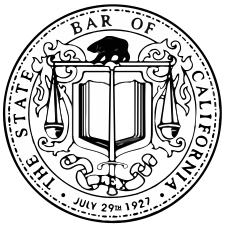Family law matters such as divorce, child custody, and support can have a profound impact on your life and the lives of your loved ones.
At Moradi Saslaw, we realize how important it is to protect your family as well as your business and financial interests. Our family law attorneys understand the complexities and challenges that come with these issues – especially when they involve high-earning professionals and business owners. We have significant experience representing clients in complex, high-profile cases and pride ourselves on guiding them through the process – from inception through completion.
In any family law case involving high-earning individuals, significant assets and property, or children, it is imperative you contact an experienced family law attorney.
At Moradi Saslaw, our family law attorneys can do the following, and more, on your behalf
We are a full-service family law firm with experience litigating and negotiating complex divorces and domestic partnership dissolutions in California since 2009.
Whether it’s a simple asset division, a basic custody agreement, or more intricate matters like dividing stock options, limited partnership interests, or a contested custody dispute, we develop creative strategies to meet every goal. Our premier divorce lawyers have a strong record of courtroom success and negotiated settlements.









Family law is an area of civil law that governs the legal obligations between individuals, typically those related by blood or marriage. The procedures and statutes are outlined in the California Family Code.
The majority of family law proceedings arise from a marriage or domestic partnership, and includes the unique issues that same-sex couples face when separating. Couples may desire a prenuptial agreement before marriage. Spouses or partners may seek an annulment, legal separation, or divorce after a marriage or registered domestic partnership.
Child custody, visitation, and support are determined and regularly disputed in the family law courts. Family law cases also address the following areas and more:
California is a community property state. Without a prenuptial or postnuptial agreement saying otherwise, all property acquired by the parties during the marriage is presumed to be community property.
A prenuptial agreement is a contract written and signed before that specifies both parties’ property rights in the event of a divorce. It also lists any separate property they bring to the marriage and can specify terms such as a waiver or limitation of spousal support.
There are strict laws governing prenuptial agreements. Therefore, both parties should have attorneys to advise them throughout the prenuptial process and signing of the agreement to ensure its validity.
Postnuptial agreements are entered into after marriage. These agreements can be beneficial for parties who acquire substantial assets or debts after marriage. Postnuptial agreements may need updating throughout the marriage as circumstances change.
California is a no-fault divorce state. This means that no grounds need to be stated by either spouse to obtain a divorce. Instead, a dissolution of marriage can be granted due to an irrevocable breakdown of the marriage.
There are residency requirements to divorce in California. At least one of the spouses needs to be a state resident for at least six months before filing the divorce petition. They must also reside in the county where they file for the divorce for at least three months prior to filing.
California has a mandatory six-month waiting period before any divorce can be finalized by the court.
In California, the court may order one spouse or domestic partner to pay the other support money after a divorce or legal separation. This order is called spousal support for divorcing married couples and partner support in domestic partnerships. Spousal and partner support can be temporary, paid while your case is ongoing, or permanent, ordered when your divorce or legal separation becomes final.
Temporary support is often calculated by local courts using a formula that varies from jurisdiction to jurisdiction. In San Francisco County, temporary spousal or partner support is generally computed by taking 40% of the net income of the payor, minus 50% of the net income of the payee, adjusted for tax consequences. However, the court may use its discretion to deviate from the amount of guideline support resulting from the computer calculation.
In contrast, permanent support is not determined by a formula. A judge must consider many factors, including (but not limited to):
Additionally, court-ordered support may be changed, modified or ended under certain circumstances.
Couples going through a divorce can either agree on property and debt division or request the court to make their decisions for them. California is a community property state. Therefore, any marital assets and debts must be divided equally in a divorce.
There are three steps to property division:
Determining whether the property (or debt) is community or separate
Agreeing on a value for any community property
Deciding how to divide that property
In California, there is a strong presumption that the assets a couple accumulates during the marriage are community property. Separate property includes property one spouse owned alone, before the marriage, or acquired by gift or inheritance during the marriage.
Separate property also includes items purchased with or exchanged for separate property, earnings on separate property, and any increase in the value of the separate property. Separate property belongs to the spouse who owns it and is not divided in a divorce.
California law also provides that property spouses acquire before divorce but after separation is separate property. The date of separation is the date that one spouse decides to end the marriage. It requires some act of physical separation and other actions that demonstrate a decision to end the marriage.
There are two types of custody in California, legal and physical. Parents are encouraged to share both legal and physical custody. However, they may share any combination of the two. When parents cannot make their own custody decisions, the court will do so on their behalf according to the child’s best interests.
The court considers the following factors when making its decision:
The court can consider a child’s opinion if at least fourteen years old and mature enough to express a preference.
Legal child custody is the right to make significant decisions about a child’s welfare, health, and education. Joint legal custody means that both parents share the right and responsibility to make decisions relating to the health, education, and welfare of a child. A parent with sole legal custody has the right to make all major decisions relating to the health, education, and welfare of a child and may make such decisions without getting the other parent’s input.
Physical custody refers to where a child lives. The parent with physical custody has the right to have the child physically present in the home. Parents with joint physical custody both have significant periods of physical custody. A parent with sole physical custody has residential custody of a child subject to court-ordered visitation time with the other parent.
Child support is the ongoing financial contribution to help pay for the living expenses of a child (or children) until they become adults. Under state and federal law, both parents have a legal responsibility to provide financial support for their children. The amount of support paid, called the child support order, is based on a complex calculation that considers the following:
This formula is applied in divorces, separations, paternity cases, and domestic partnership cases. The guideline is in place to provide for a minimum level of child support for a child and uniformity in the calculation of child support.
The court is required to order the guideline level of child support unless there is a good reason why a different amount of child support is appropriate. Under Family Code 4057, deviation from the child support guideline may be necessary when:
Establishing paternity in California means making a legal determination of a child’s parentage. There are instances where the law assumes the identity of a child’s father and these include:
Outside of these circumstances, paternity must be established.
Paternity can be established voluntarily. A child’s father and mother can agree and sign a Voluntary Declaration of Paternity or VDP. This occurs when an unmarried woman gives birth in a hospital or other medical setting. The medical provider must provide the mother and alleged father, if he is present, information on the VDP form.
By signing the VDP form, the mother and father acknowledge they are the child’s parents and that the father is the child’s legal father. At that time, the father’s name can be added to the child’s birth certificate. The father then has parental rights and responsibilities to his child.
Paternity may also be established through a paternity action by one of the following persons or agencies:
Any child over twelve years of age is considered a party in the case. Younger children are appointed a representative called a guardian ad litem.
There are several benefits to establishing the paternity of a child. The first is financial support and health insurance for a child. The child may also qualify for public benefits, be included as an heir to an estate, or have access to needed medical information.
Whatever your family law needs may be, the family law attorneys at Moradi Saslaw will always put your best interests first and be there for you through every step of the legal process. If you are facing any family law issue in the San Francisco Bay Area, call us at (415) 625-4587 or fill out our contact form to schedule a consultation with one of our experienced family law attorneys.
"*" indicates required fields

We are a full-service family law firm with experience litigating and negotiating complex divorces and domestic partnership dissolutions in California.
"*" indicates required fields